


Books in series

Ideas and Politics of Chilean Independence 1808-1833
1968

Church Wealth in Mexico
A Study of the 'Juzgado de Capellanias' in the Archbishopric of Mexico 1800–1856
1967

Britain and the Onset of Modernization in Brazil 1850–1914
1968

Parties and Political Change in Bolivia
1880-1952
1970

The Abolition of the Brazilian Slave Trade
Britain, Brazil and the Slave Trade Question
1970

Regional Economic Development
The River Basin Approach in Mexico
1970

Economic Development of Latin America
Historical Background and Contemporary Problems
1969

An Economic History of Colombia 1845-1930
1971

Miners and Merchants in Bourbon Mexico, 1763-1810
1971

Alienation of Church Wealth in Mexico
Social and Economic Aspects of the Liberal Revolution 1856-1875
1971

Bolivia
Land, Location and Politics Since 1825
1972

A Guide to the Historical Geography of New Spain
1972

Conflicts and Conspiracies
Brazil and Portugal, 1750-1808
1973

Marriage, Class and Colour in Nineteenth Century Cuba
A Study of Racial Attitudes and Sexual Values in a Slave Society
1974

Politics in Argentina, 1890-1930
The Rise and Fall of Radicalism
1975

Studies in the Colonial History of Spanish America
1975

Chilean Rural Society
From the Spanish Conquest to 1930
1975

Letters and People of the Spanish Indies
Sixteenth Century
1976

The African Experience in Spanish America
1976

The Cristero Rebellion
The Mexican People Between Church and State 1926-1929
1976

Allende's Chile
The Political Economy of the Rise and Fall of the Unidad Popular
1976

A History of the Bolivian Labour Movement 1848–1971
1977

Coronelismo
The Municipality and Representative Government in Brazil
1949
Drought and Irrigation in North-East Brazil
1978

Merchants of Buenos Aires 1778–1810
Family and Commerce
1978

Foreign Immigrants in Early Bourbon Mexico, 1700–1760
1979

Haciendas and Ranchos in the Mexican Bajío
León 1700–1860
1979

Modernization in a Mexican Ejido
1979

From Dessalines to Duvalier
Race, Colour and National Independence in Haiti
1979

A Socioeconomic History of Argentina, 1776-1860
1979

Coffee in Colombia, 1850–1970
An Economic, Social and Political History
1980

Caudillo and Peasant in the Mexican Revolution
1980

The Struggle for Land
A Political Economy of the Pioneer Frontier in Brazil from 1930 to the Present Day
2002

Revolution from Without
Yucatán, Mexico, and the United States, 1880-1924
1982

Juan Vicente Gómez and the Oil Companies in Venezuela, 1908-1935
1983

Law and Politics in Aztec Texcoco
1984

Brazil's State-Owned Enterprises
A Case Study of the State as Entrepreneur
1983

Early Latin America
A History of Colonial Spanish America and Brazil
1983
Capitalist Development and the Peasant Economy in Peru
1984

Miners, Peasants and Entrepreneurs
Regional Development in the Central Highlands of Peru
1984

Unions and Politics in Mexico
The Case of the Automobile Industry
1984

Housing, the State and the Poor
Policy and Practice in Three Latin American Cities
1985
Tobacco on the Periphery
A Case Study in Cuban Labour History, 1860-1958
1985

Sugar Plantations in the Formation of Brazilian Society
Bahia, 1550-1835
1985

The Province of Buenos Aires and Argentine Politics, 1912–1943
1985

The Mexican Revolution, Volume 1
Porfirians, Liberals, and Peasants
1986

The Mexican Revolution, Volume 2
Counter-revolution and Reconstruction
1986
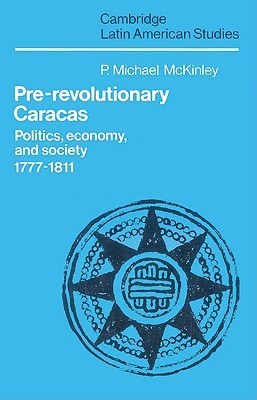
Pre-Revolutionary Caracas
Politics, Economy, and Society 1777–1811
1985

Catholic Colonialism
A Parish History of Guatemala, 1524–1821
1986

The Agrarian Question and the Peasant Movement in Colombia
Struggles of the National Peasant Association, 1967–1981
1986

Roots of Insurgency
Mexican Regions, 1750–1824
1986

Latin America and the Comintern, 1919-1943
1986

Ambivalent Conquests
Maya & Spaniard in Yucatan 1517-70
1987

A Tropical Belle Epoque
Elite Culture and Society in Turn-of-the-Century Rio de Janeiro
1987

The Political Economy of Central America since 1920
1987

Resistance and Integration
Peronism and the Argentine Working Class, 1946-1976
1988

South America and the First World War
The Impact of the War on Brazil, Argentina, Peru and Chile
1988

The Politics of Coalition Rule in Colombia
1988

The Demography of Inequality in Brazil
1988

House and Street
The Domestic World of Servants and Masters in Nineteenth-Century Rio de Janeiro
1988

Power and the Ruling Classes in Northeast Brazil
Juazeiro and Petrolina in Transition
1990

The Politics of Memory
Native Historical Interpretation in the Colombian Andes
1990

Native Society and Disease in Colonial Ecuador
1992

Negotiating Democracy
Politicians and Generals in Uruguay
1991

La República Central en México, 1835-1846
"Hombres de Bien" en la época de Santa Anna
1993

Politics and Urban Growth in Buenos Aires, 1910–1942
1993

Colombia before Independence
Economy, Society, and Politics under Bourbon Rule
1993

Power and Violence in the Colonial City
Oruro from the Mining Renaissance to the Rebellion of Tupac Amaru (1740–1782)
1995

The Economic History of Latin America Since Independence
1995

Business Interest Groups in Nineteenth-Century Brazil
1994

The Kingdom of Quito, 1690–1830
The State and Regional Development
1995

The Revolutionary Mission
American Enterprise in Latin America, 1900–1945
1996

A History of Chile, 1808-2002
1996

The Independence of Spanish America
1996

Slavery and the Demographic and Economic History of Minas Gerais, Brazil, 1720–1888
1999

Between Revolution and the Ballot Box
The Origins of the Argentine Radical Party in the 1890s
2000

Andrés Bello
Scholarship and Nation-Building in Nineteenth-Century Latin America
2001

Deference and Defiance in Monterrey
Workers, Paternalism, and Revolution in Mexico, 1890–1950
2003

Chile
La Construcción de una República, 1830-1865: Política e Ideas
1999

Shadows of Empire
The Indian Nobility of Cusco, 1750–1825
2005

Bankruptcy of Empire
Mexican Silver and the Wars between Spain, Britain, and France, 1760-1810
2007

The Political Economy of Argentina in the Twentieth Century
2005

Politics, Markets, and Mexico's 'London Debt', 1823–1887
2009

A History of the Khipu
2010

Rebellion on the Amazon
The Cabanagem, Race, and Popular Culture in the North of Brazil, 1798–1840
2010

Warfare and Shamanism in Amazonia
2012

Black Saint of the Americas
The Life and Afterlife of Martín de Porres
2014

Asian Slaves in Colonial Mexico
From Chinos to Indians
2014

Indigenous Elites and Creole Identity in Colonial Mexico, 1500–1800
2016

Indian and Slave Royalists in the Age of Revolution
Reform, Revolution, and Royalism in the Northern Andes, 1780–1825
2016
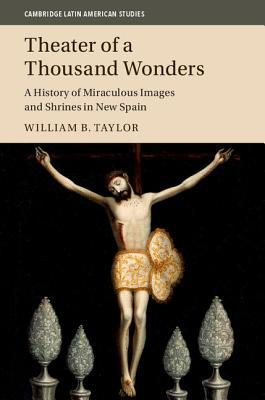
Theater of a Thousand Wonders
A History of Miraculous Images and Shrines in New Spain
2016
The Lords of Tetzcoco
The Transformation of Indigenous Rule in Postconquest Central Mexico
2017

Before Mestizaje
The Frontiers of Race and Caste in Colonial Mexico
2017
Liberalism as Utopia
The Rise and Fall of Legal Rule in Post-Colonial Mexico, 1820-1900
2017
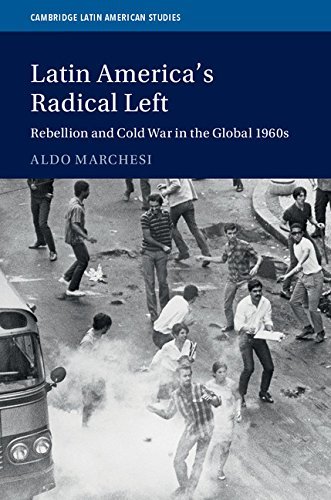
Latin America's Radical Left
Rebellion and Cold War in the Global 1960s
2017
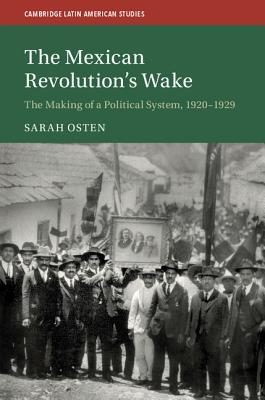
The Mexican Revolution's Wake
The Making of a Political System, 1920–1929
2018
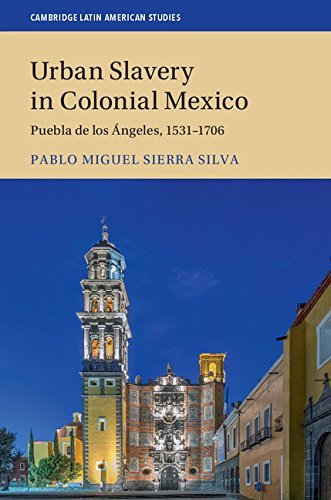
Urban Slavery in Colonial Mexico
Puebla de los Ángeles, 1531–1706
2018
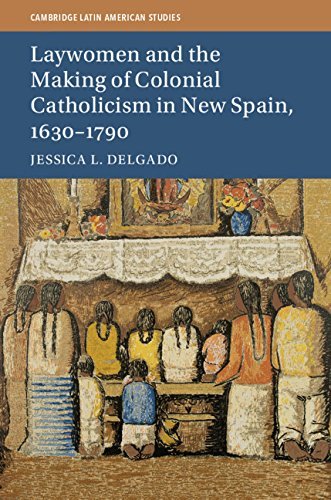
Laywomen and the Making of Colonial Catholicism in New Spain, 1630–1790
2018
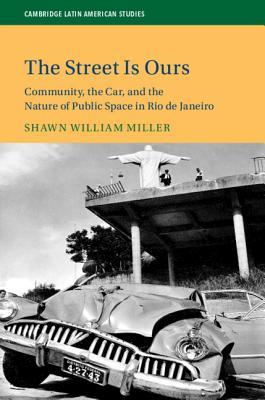
The Street Is Ours
Community, the Car, and the Nature of Public Space in Rio de Janeiro
2018
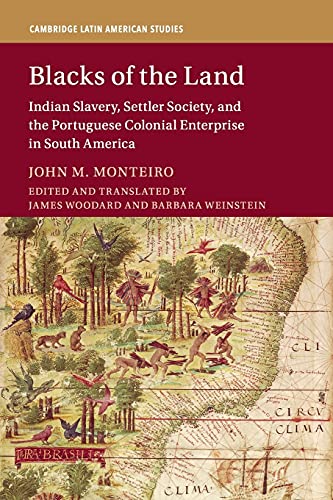
Blacks of the Land
Indian Slavery, Settler Society, and the Portuguese Colonial Enterprise in South America
2018
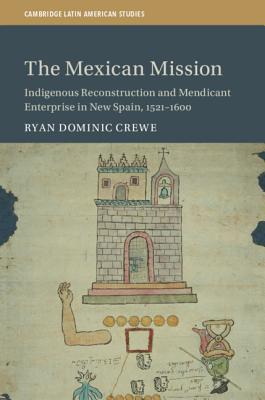
The Mexican Mission
Indigenous Reconstruction and Mendicant Enterprise in New Spain, 1521–1600
2019
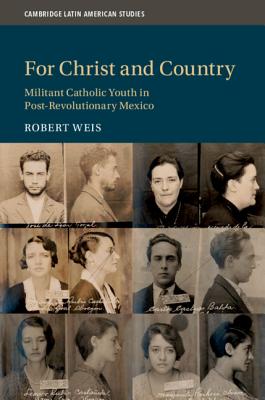
For Christ and Country
Militant Catholic Youth in Post-Revolutionary Mexico
2019
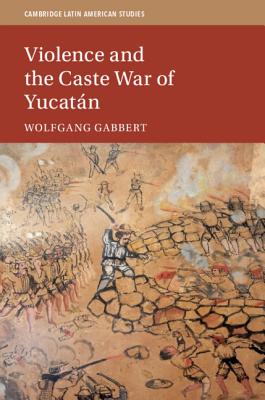
Violence and the Caste War of Yucatán
2019
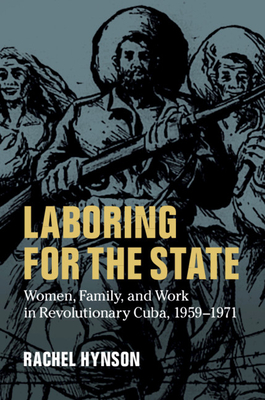
Laboring for the State
Women, Family, and Work in Revolutionary Cuba, 1959-1971
2020
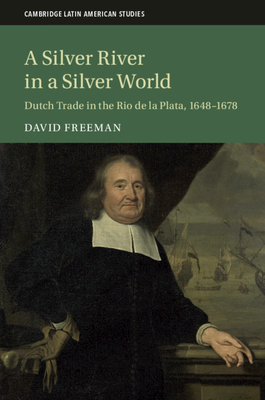
A Silver River in a Silver World
Dutch Trade in the Rio de la Plata, 1648-1678
2020
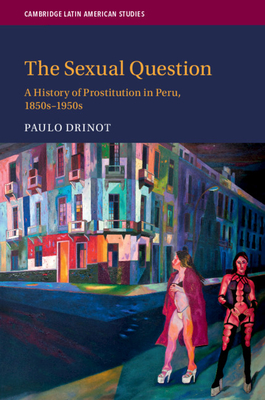
The Sexual Question
A History of Prostitution in Peru, 1850s-1950s
2020
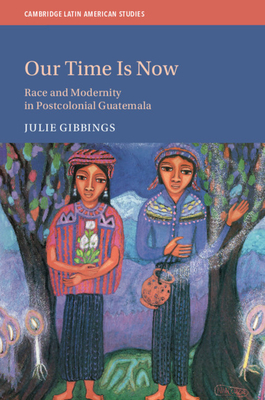
Our Time is Now
Race and Modernity in Postcolonial Guatemala
2020
Authors

Historiador y abogado Bogotano nacido el 13 de junio de 1944. Se graduó en leyes de la Universidad de Colombia y luego recibió su primer posgrado del Colegio de México en 1970 al concluir sus estudios sobre Asia. Posteriormente recibió su Doctorado en Filosofía de la Universidad de Oxford en Inglaterra. Al concluir sus estudios en México, se vinculó al Centro de Investigaciones para el Desarrollo, CID, de la Universidad Nacional de Colombia, donde trabajó como investigador durante un periodo de dos años. Su carrera académica continuó como conferencista y ponente en distintos congresos especializados realizados en diversos países como Venezuela, Argentina, México, Cuba, Costa Rica, Francia, España y Gran Bretaña. En agosto de 1984, Marco Palacios fue nombrado rector de la Universidad Nacional de Colombia. Anteriormente a su nombramiento, había sido miembro del consejo de acreditación de ciencias sociales y humanidades de la misma. Ocupó el cargo de rector hasta julio de 1988. Durante su tiempo a cargo de la Universidad, Marco Palacios implementó una serie de políticas encaminadas a cerrar las viviendas estudiantiles de la universidad, pues argumentaba que muchas de estas estaban recibiendo un uso inadecuado. Igualmente, reformó el sistema de cafeterías de la universidad con el propósito de administrar mas eficientemente los recursos estatales. En el año 2003 Marco Palacios fue nombrado nuevamente rector de la Universidad Nacional para el periodo 2003-2006. Desde entonces, su política se encaminó a brindarle más autonomía a la Universidad y hacer más eficiente su manejo. Poco después de asumir el cargo propuso la reducción del periodo de estudios a cuatro años académicos.
From the University of Texas at Austin Department of History: Jonathan C. Brown has published four single-authored books: A Socioeconomic History of Argentina, 1776-1860 (1979); Oil and Revolution in Mexico (1993), Latin America: A Social History of the Colonial Period (2nd ed., 2005), and A Brief History of Argentina (2nd ed., 2009). Two of these books have been translated and published in Latin America. His first book on Argentina, published by Cambridge University Press, won the Bolton Prize. Brown also edited a collection of essays on workers and populism in Latin America and co-edited books on the Mexican oil industry and on Argentine social history.
Stuart B. Schwartz is Professor of History at Yale University and the former Master of Ezra Stiles College. He studied at Middlebury College, where he received his undergraduate degree, and the Universidad Autonoma de Mexico. He then went on to study Latin American History at Columbia University where he received his Ph.D. (1968). He is one of the leading specialists on the History of colonial Latin America, especially Brazil and on the history of Early Modern expansion.

Aka Emma Darby Jean was born in Lancashire and educated in Manchester. She has written many novels and short stories for magazines and collections, several of which have been adapted for radio and television. She has lived for more than twenty years in a cottage in Cornwall, England, with her husband.

Oitavo ocupante da Cadeira 11, eleito em 7 de agosto de 1997, em sucessão a Darcy Ribeiro e recebido pelo Acadêmico Eduardo Portella em 31 de outubro de 1997.
Filho de Maurício de Medeiros Furtado, de família de magistrados, e de Maria Alice Monteiro Furtado, de família de proprietários de terra. Foi casado com a jornalista Rosa Freire dAguiar.
Estudos secundários no Liceu Paraibano, em João Pessoa, e no Ginásio Pernambucano, no Recife. Bacharel em Direito pela Universidade Federal do Rio de Janeiro (1944), Doutor em Economia (1948) pela Universidade de Paris (Sorbonne). Estudos de pós-graduação na Universidade de Cambridge, Inglaterra (1957), sendo Fellow do Kings College. Participou da Força Expedicionária Brasileira durante a Segunda Guerra Mundial. Técnico de Administração do Governo Brasileiro (1944-45). Economista da Fundação Getúlio Vargas (1948-49);
Como Diretor da Divisão de Desenvolvimento da CEPAL (1949-57), contribuiu de forma decisiva, ao lado do economista argentino Raúl Prebish, para a formulação do enfoque estruturalista da realidade socioeconômica da América Latina;
Diretor do Banco Nacional do Desenvolvimento Econômico (BNDE) (1958-59);
No Governo de Juscelino Kubitschek, elaborou o Plano de Desenvolvimento do Nordeste, que deu lugar à criação da SUDENE, órgão que dirigiu por cinco anos (1959-64);
No Governo João Goulart, foi o primeiro titular do Ministério do Planejamento (1962-63);
Com o golpe militar de 1964, teve seus direitos políticos cassados por dez anos, dedicando-se então à pesquisa e ao ensino da Economia do Desenvolvimento e da Economia da América Latina em diversas universidades como as de Yale (EUA, 1964-65), Sorbonne (França, 1965-85), American University (EUA, 1972), Cambridge (“Cátedra Simon Bolívar”- Inglaterra, 1973-74), Columbia (EUA, 1976-77);
Com a redemocratização, foi embaixador do Brasil junto à Comunidade Econômica Européia (1985-86), em Bruxelas, e Ministro da Cultura do Governo Sarney (1986-88), quando elaborou a primeira legislação de incentivos fiscais e fez a defesa da identidade cultural brasileira.

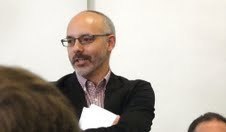

Anthony McFarlane is Professor Emeritus of History at the University of Warwick, UK. His research has focused chiefly on the histories of Colombia and Ecuador, seen within the context of the history of the Spanish world in the period c.1700-c.1850. It includes study of Colombia's economic history during and after the colonial period, the history of rebellions, slavery and crime in the late colonial period, and the movements for independence in the early nineteenth century. He has also been interested in the comparative history of late colonial Spanish America [particularly the viceroyalties of Peru and New Granada] and in British American colonial history [the origins and growth Britain's 'First Empire' in North America and the Caribbean]. His current research centers on the Spanish American wars of independence in the period 1810-1825.


Kenneth Maxwell was the founding Director of the Brazil Studies Program at Harvard University's David Rockefeller Center for Latin American Studies (DRCLAS) (2006-2008) and a Professor in Harvard's Department of History (2004-2008). From 1989 to 2004 he was Director of the Latin America Program at the Council on Foreign Relations, and in 1995 became the first holder of the Nelson and David Rockefeller Chair in Inter-American Studies. He served as Vice President and Director of Studies of the Council in 1996. Maxwell previously taught at Yale, Princeton, Columbia, and the University of Kansas. Kenneth Maxwell founded and was Director of the Camões Center for the Portuguese-speaking World at Columbia and was the Program Director of the Tinker Foundation, Inc. From 1993 to 2004, he was the Western Hemisphere book reviewer for Foreign Affairs. He is a regular contributor to the New York Review of Books and was a weekly columnist between 2007 and 2015 for Folha de São Paulo and monthly columnist for O Globo from 2015. Maxwell was the Herodotus Fellow at the Institute for Advanced Study, Princeton, and a Guggenheim Fellow. He served on the Board of Directors of The Tinker Foundation, Inc., and the Consultative Council of the Luso-American Foundation. He is also a member of the Advisory Boards of the Brazil Foundation and Human Rights Watch/Americas. Maxwell received his B.A. and M.A. from St. John's College, Cambridge University, and his M.A. and Ph.D. from Princeton University.


Leslie Bethell is Emeritus Professor of Latin American History and Honorary Research Fellow of the Institute for the Study of the Americas, University of London; Emeritus Fellow of St Antony’s College, Oxford; Senior Research Associate, Centro de Pesquisa e Documentação de História Contemporânea do Brasil, Fundação Getulio Vargas, Rio de Janeiro; and Senior Scholar, Woodrow Wilson International Center for Scholars, Washington, D.C. He is a former Director of the Institute of Latin American Studies, University of London (1987-92), and founding Director of the Centre for Brazilian Studies, University of Oxford (1997-2007). He has been Visiting Professor at a number of Brazilian and US universities and research institutions, including the Instituto Universitário de Pesquisas do Rio de Janeiro (1979), the University of California, San Diego (1986), the University of Chicago (1992-3), and the Woodrow Wilson Center, Washington D.C: Fellow (1987), Guest Scholar (1996-7), Public Policy Scholar (2008-9, 2010 and 2011). Professor Bethell's research has been principally in the field of nineteenth and twentieth-century Latin American – and especially Brazilian – political, social and cultural history. His publications include The abolition of the Brazilian slave trade (Cambridge, 1970; Port. trans. 1976; 2nd Port. trans., 2002), (editor, with Ian Roxborough) Latin America between the Second World War and the Cold War (Cambridge, 1992; Port. trans. 1996), The Paraguayan War (1864-1870) (London, 1996), (editor) Brasil: fardo do passado, promessa do futuro. Dez ensaios sobre politica e sociedade brasileira (Rio de Janeiro, 2002), Brazil by British and Irish authors (Oxford, 2003), (editor, with José Murilo de Carvalho) Joaquim Nabuco e os abolicionistas britânicos (Rio de Janeiro, 2008; Eng. trans., 2009), and Charles Landseer- Desenhos e Aquarelas de Portugal e do Brasil, 1825-1826 (Rio de Janeiro: Instituto Moreira Salles, 2010). He is Editor of the Cambridge History of Latin America (12 volumes, Cambridge University Press, 1984-2008), which is also being published in Spanish, Portuguese and Chinese, and the author or co-author of chapters on the Independence of Brazil and Brazil 1822-1850 in CHLA vol. III Latin America, from Independence to c. 1870 and four chapters on the politics of Brazil 1930-2002 in CHLA vol. IX Brazil since 1930 (2008). Professor Bethell serves on the International Advisory Councils of a number of Brazilian institutions and on the Editorial Boards of several Brazilian journals. Professor Bethell has been awarded the Ordem Nacional do Cruzeiro do Sul by the Brazilian government (Comendador in 1994, Grande Oficial in 1998). In 2004 he was elected a member of the Academia Brasileira de Ciências. In 2010 he was elected a sócio correspondente (one of twenty foreign associate members) of the Academia Brasileira de Letras. He also in 2010 received the Ordem Nacional do Merito Cientifico (Comendador). He currently lives in Rio de Janeiro.He is the sole editor of the eleven volume Cambridge History of Latin America, a massive attempt at compiling and integrating the existing scholarship of Latin American studies.[5] The entire product took more than fifteen years to be completed[6] The work, was praised widely, with the historian Paul Gootenberg noting that the series had "earned rave scholarly reviews throughout the 1990s".[7] The Library Journal referred to the first two volumes of the series as "the most detailed, comprehensive, and authoritative work on the subject available"[8], while the political scientist Paul W. Drake called various volumes in the set "landmark[s] in their field."[9] Reviews were not completely positive, however, with some of the volumes being described as "unwieldy"[10] and skewed too much to the present age.[11] Alternately, the series has also been criticized for its lack of coverage of issues whose impacts have extended into contemporary times and of the trends that had
